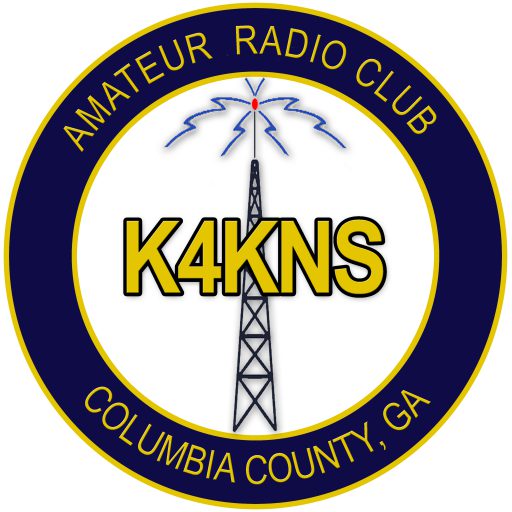Amateur Radio in Disaster Response
Amateur Radio in Disaster Response
When disaster strikes, communication is key. In the aftermath of a hurricane, earthquake, or wildfire, traditional communication systems often fail, leaving communities cut off from the outside world. This is where amateur radio operators come in – providing a lifeline to affected communities and playing a crucial role in disaster response and recovery efforts.
The Importance of Communication in Disaster Response
In the event of a disaster, communication is critical. Emergency responders need to be able to coordinate their efforts, and affected communities need to be able to call for help. However, traditional communication systems such as cell phones and internet often fail in the aftermath of a disaster. This is where amateur radio operators come in – providing a reliable means of communication when all else fails.
"Amateur radio operators are the unsung heroes of disaster response," says Tom Gallagher, CEO of the American Radio Relay League (ARRL). "They provide a vital link between emergency responders and affected communities, helping to coordinate relief efforts and save lives."

How Amateur Radio Operators Contribute to Disaster Response
Amateur radio operators contribute to disaster response in a variety of ways. They provide communication support to emergency responders, helping to coordinate relief efforts and facilitate the exchange of critical information. They also provide a means of communication for affected communities, allowing them to call for help and receive important information about the disaster response efforts.
In addition to providing communication support, amateur radio operators also play a critical role in gathering and disseminating information about the disaster. They often serve as the eyes and ears of the disaster response effort, providing critical information about the extent of the damage and the needs of affected communities.
Real-Life Examples of Amateur Radio in Disaster Response
There are many examples of amateur radio operators playing a critical role in disaster response efforts. One notable example is the response to Hurricane Maria in Puerto Rico. When the hurricane struck in 2017, it devastated the island's communication infrastructure, leaving many communities cut off from the outside world. Amateur radio operators sprang into action, providing a vital link between emergency responders and affected communities.
"We were able to establish communication with the outside world and coordinate relief efforts," says Oscar Resto, a Puerto Rican amateur radio operator. "It was a lifeline for our community, and we were proud to be able to play a role in the disaster response effort."
The Benefits of Amateur Radio in Disaster Response
There are many benefits to using amateur radio in disaster response efforts. One of the main benefits is that amateur radio operators are often able to establish communication quickly and easily, even in areas where traditional communication systems have failed. This is because amateur radio operators use a variety of frequencies and modes, including Morse code, voice, and digital modes.
Another benefit of amateur radio in disaster response is that it is often more reliable than traditional communication systems. Amateur radio operators use a variety of equipment, including handheld transceivers and base stations, which are designed to be rugged and reliable. This means that amateur radio operators are often able to maintain communication even in the most challenging environments.
Getting Involved in Amateur Radio Disaster Response
If you're interested in getting involved in amateur radio disaster response, there are many ways to do so. Here are a few steps you can take:
- Get licensed: The first step to getting involved in amateur radio disaster response is to get licensed. In the United States, this involves passing a series of exams administered by the Federal Communications Commission (FCC).
- Join a local amateur radio club: Joining a local amateur radio club is a great way to meet other amateur radio operators and learn more about the hobby.
- Take a disaster response course: Many organizations, including the ARRL, offer courses on disaster response and emergency communication.
- Volunteer: Once you're licensed and trained, you can volunteer to participate in disaster response efforts.
Some of the key skills and qualities required to be an effective amateur radio operator in disaster response include:
- Strong communication skills
- Ability to work well under pressure
- Knowledge of amateur radio equipment and protocols
- Ability to think critically and solve problems
- Willingness to volunteer and participate in disaster response efforts
Finding Calm in the Storm
As amateur radio operators know, staying calm under pressure is crucial in emergency situations. But what about when the crisis has passed, and it's time to unwind? For some, the thrill of uncertainty can be a hard habit to break. That's why some hams have turned to online games of chance as a way to channel their love of unpredictability into a fun and relaxing hobby. Take, for example, the rush of adrenaline that comes with spinning the reels on a game like Fishin’ Pots of Gold: Gold Blitz Extreme slot (Gameburger Studios). With its unpredictable payouts and exciting gameplay, it's the perfect way to experience the thrill of the unknown from the comfort of your own home. And who knows - you might just find that the skills you've honed in the high-pressure world of amateur radio serve you well in the fast-paced world of online gaming.
Conclusion
Amateur radio operators play a critical role in disaster response and recovery efforts, providing a lifeline to affected communities and facilitating the exchange of critical information. Whether you're an experienced amateur radio operator or just getting started, there are many ways to get involved in amateur radio disaster response. By getting licensed, joining a local amateur radio club, taking a disaster response course, and volunteering, you can help make a difference in the lives of those affected by disaster.
